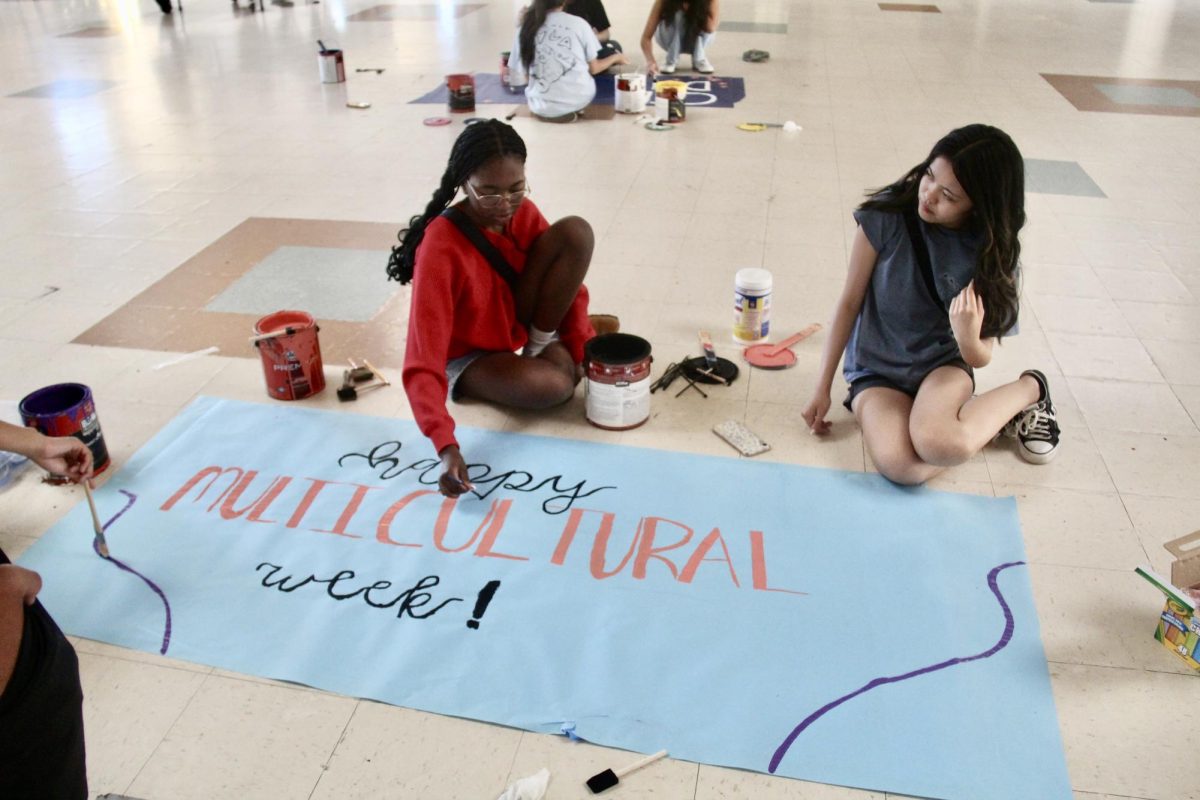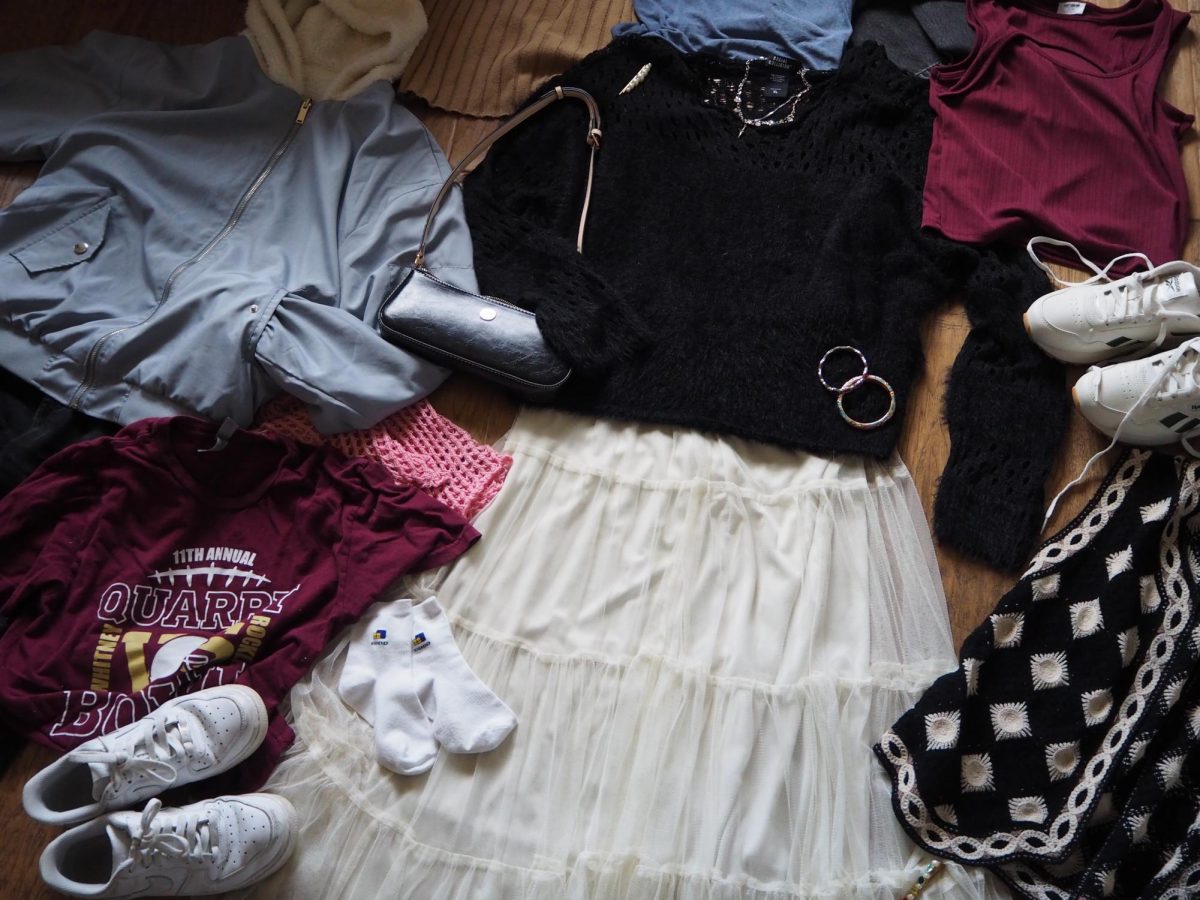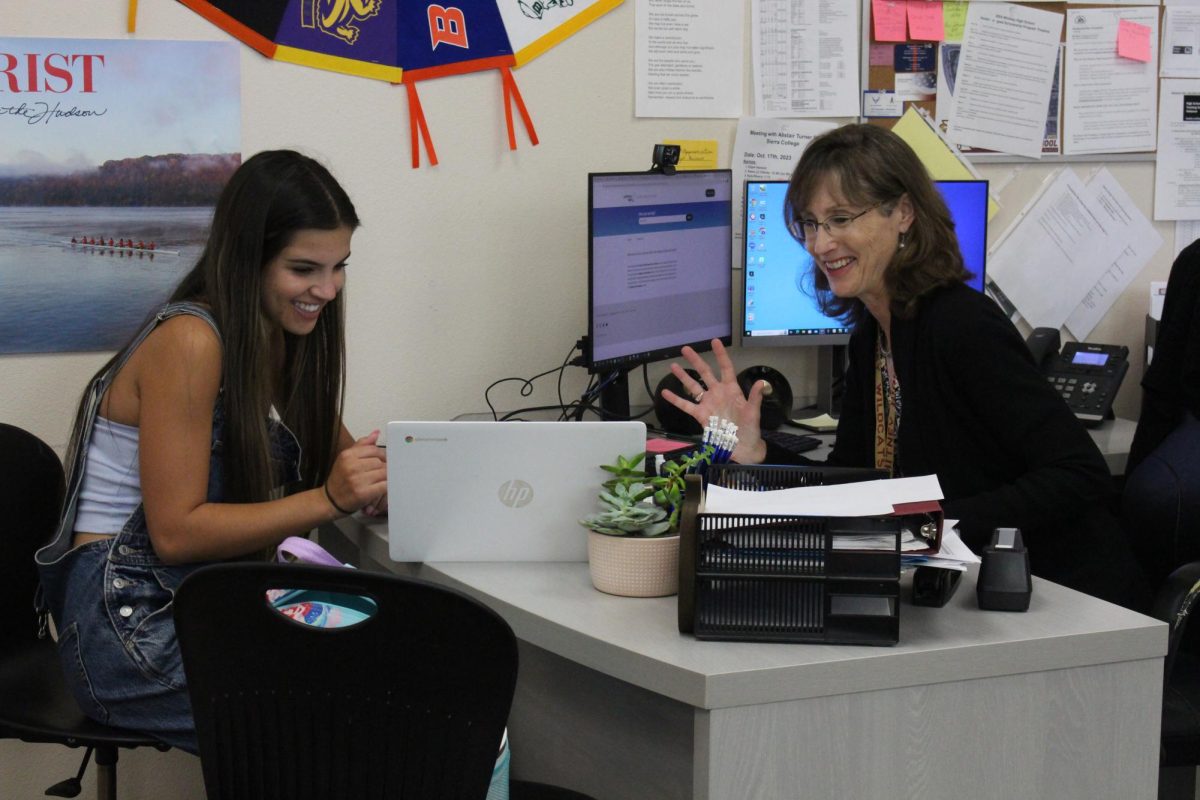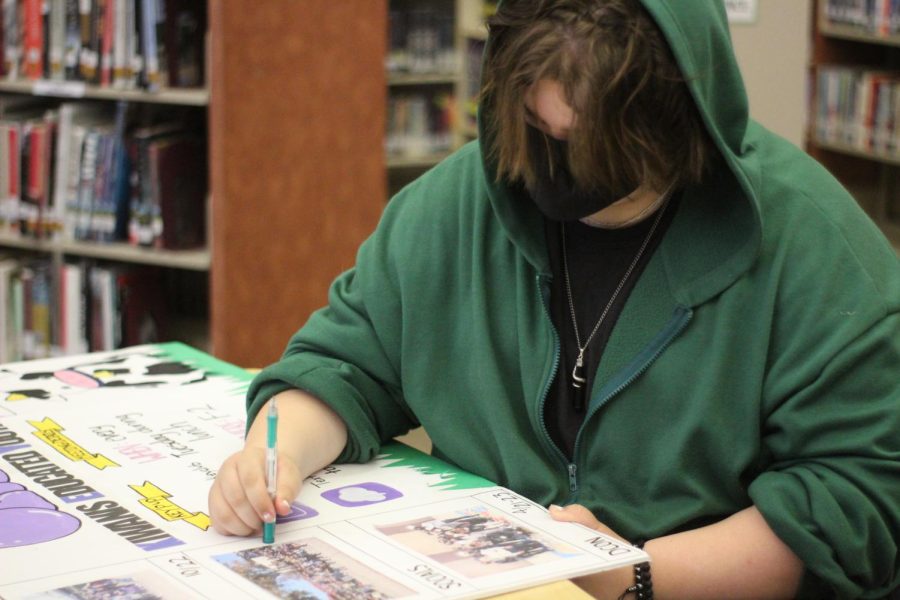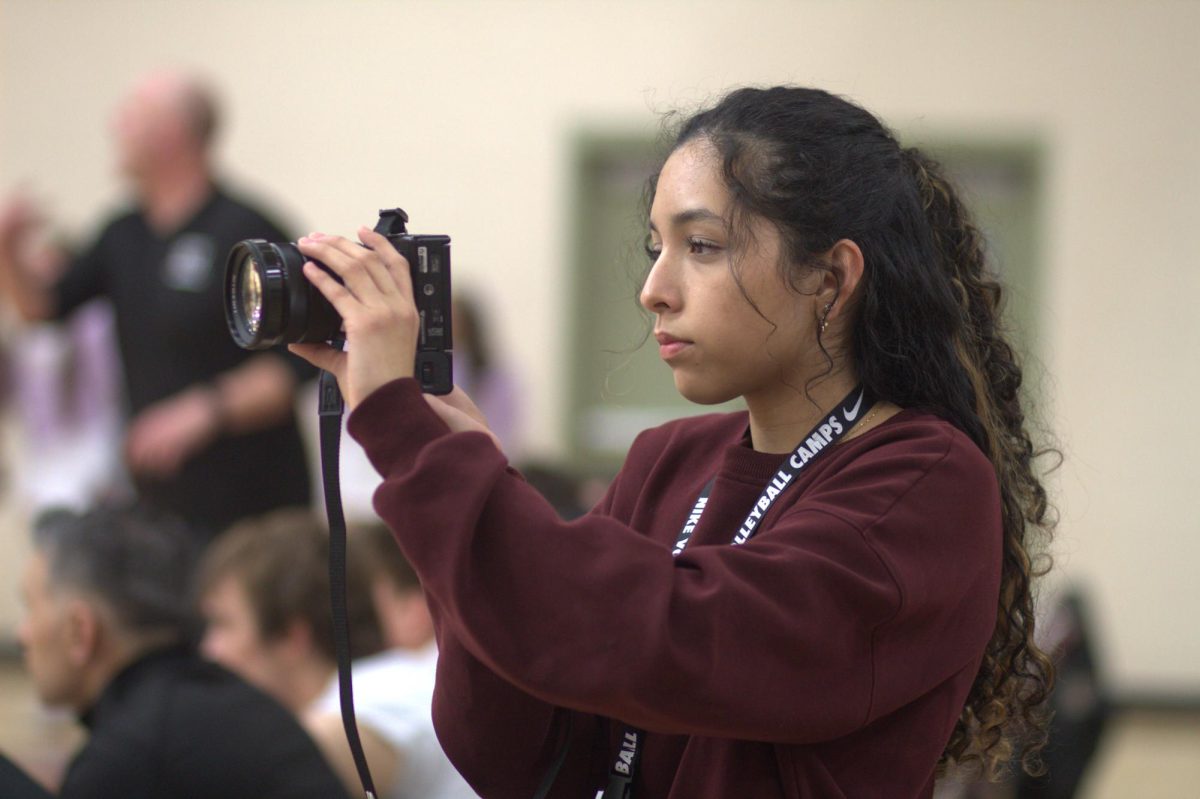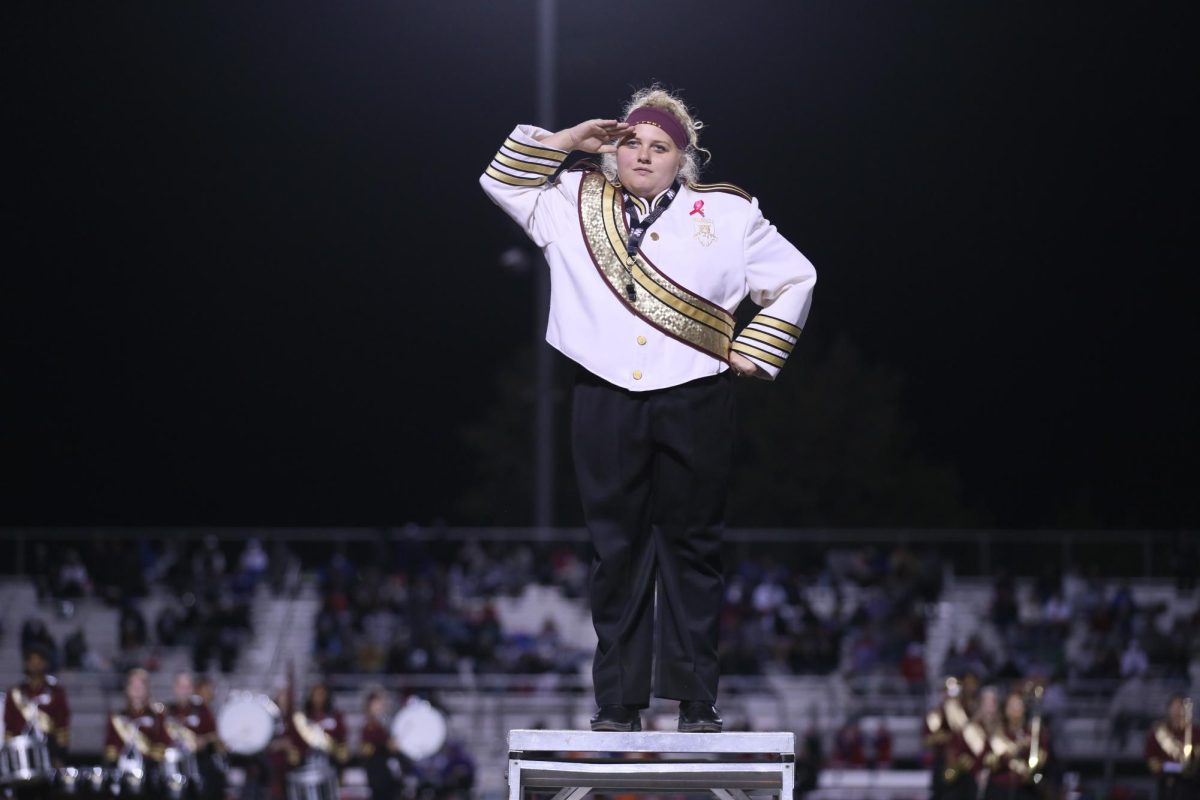
Walking into room E9 at lunch on Feb. 27, a mid-sized group of around 20 students sat down before four girls standing in front of a blank white board. The club meeting started with the president’s announcement of the cabinet: Meg Harper (president), Kaylee Wahler (vice-president), Andrea Licata (secretary) and Kyla Beldivino (treasurer). The new Saving Kids at the Edge (SKATE) club had officially started its first meeting.
But the atmosphere changed after the preliminary introductions. Harper glanced around the classroom and began to speak. All was silent.
“A few years ago, I turned to self-harm to take away that pain that I was feeling, that was put on me. That was just my way of dealing with it,” Harper said. “It was unhealthy but that’s just the way I dealt with it. So I came up with the idea of trying to help other people who are going through the same thing. At Whitney, we haven’t experienced someone taking their own life and we’re lucky in that fact. But there is still bullying going on and we’re trying to make a difference.”
Harper’s main goal for the new club is early awareness not only of the club, but of what the club represents.
“The SKATE club is about spreading awareness for teen suicide and self harm, letting people know they aren’t alone in whatever they are going through, letting people know there are people that care and doing fundraisers to raise proceeds for the National Teen Suicide Hotline,” Harper said.
Club members hope to bring awareness to these issues through fundraisers, events and videos.
“We are working on a concert or musical event at some point in the future to raise money. We have a booth at showcase night to try and get incoming freshman involved. We are working on getting T-shirts and basically getting the whole thing off the ground. We’re still really new,” member Emma Barton said.
Proposed to Ms. Carissa Kuehn by Harper in mid-February, the idea of SKATE club came about more than halfway through the school year.
“I have always wanted to (create a club) but in light of the recent (suicides) in high school throughout the U.S., the need for awareness and a club like this became urgent,” Harper said.
Kuehn and Mrs. Abby Pena co-advise SKATE club together.
“Meg Harper asked me, and I have known Meg for a couple of years now. She’s someone that I respect and when she told me what the club was about, it’s just something that I have always personally felt very strongly about. I was very eager to help out and be the adviser for it,” Kuehn said. “I was very impressed that she has taken that initiative to actually start it. It’s something where I think teenagers deal with this a lot but they don’t know how to deal with it. To have a student who is so actively wanting to make a difference, I was very impressed and excited.”
Kuehn lets Harper run most everything involved with the club due to her motivation and dedication to the cause, but still helps as an adviser and an adult.
“We let them run their meetings, offer advice as needed and make sure that everything is cleared through the school, particularly any fundraisers and events because everything has to be approved through ASB, so we want to make sure that whenever anything is involving money or activities that everything is correct,” Kuehn said. “We want to make sure that everything is legal through the school, especially if money is changing hands. We always want to make sure that if companies or anyone wants to donate, that the proper routes are taken.”
Harper’s initiative of starting SKATE club didn’t come from external reasons such as the prestige of starting a club, community service hours or something to put on a college resume. The motivation behind the club comes from a much more personal point of view.
“SKATE means more to me than words can describe. I have struggled with cutting and self-harm for years and only stopped after I met my girlfriend last year. She gave me the reason to change myself but it was me in the end who had to make the change. It was probably the hardest thing I have ever had to do,” Harper said.
However, this path towards change was not simple. Harper struggled for years before she finally motivated herself to get better.
“Suicide also runs in my family and self-harm has been something a few friends have tried. It honestly killed me to see someone I love in that much pain, especially knowing the mindset you have to be in to do it because I struggled with it myself. I also contemplated killing myself. I even wrote a note. I have felt pain and self-harmed for many reasons — because I felt like I wasn’t worth anything. I got mixed in with the wrong crowd and lost a lot of great friends that I regret hurting. I learned that self-harm is an addiction like drugs or alcohol and that I wasn’t alone in it — other people struggled with it like me. I’m not perfectly healed now because sometimes I still want to (self-harm). But I am strong enough now to know that’s not the only way to feel alive,” Harper said. “Starting this club means that I can make a difference and even save the life of a kid who was like me or is like me and let them know they aren’t alone — that this isn’t the end and that suicide isn’t the answer to a temporary problem.”
Coming from Kuehn’s perspective, she knows there is a possibility of controversy due to the fact that the club deals with teenagers, but she also believes in making a bigger impact due to that same fact.
“There’s some concern with teenagers. There’s some who are going to be very positively impacted and then there are always going to be those kids that don’t get what it’s about. I’m hoping that kids can help those people understand that it is a problem and just because you have never dealt with it doesn’t mean that people don’t deal with it,” Kuehn said. “I’m hoping that this club will help people find better connections and find good and positive ways to actually work through issues. I think at this age in particular, people feel like they have to keep all this stuff hidden. As a result, we’re getting a lot of adolescents and young adults that aren’t able to handle their emotions and aren’t able to handle the stress that’s put on them by themselves or by circumstances in their lives. I’m hoping that we can help them deal with these things instead of turning to drug abuse, alcohol abuse, self-harm or even falling into a depression.”
SKATE ultimately hopes to reach out to the kids at the edge, on the brink of depression, self-harming or committing suicide by uniting as a support group, tolerant of all backgrounds and stories. The club meets on Wednesdays, but will soon change to Thursdays, in room E9. All are welcome to join the club with only the requirement of being interested and being involved.
To represent SKATE’s goals, the club made a video that demonstrates people hiding their personal stories from others and the effect those stories can have.
“Something I try to live by is ‘Everyone has a story and something that made them who they are,’” Barton said. “I think that really applies to SKATE club. Whether it was a great thing or a terrible thing that formed who someones is, you never know what it’s like to be someone.”
by EMMA RICHIE

